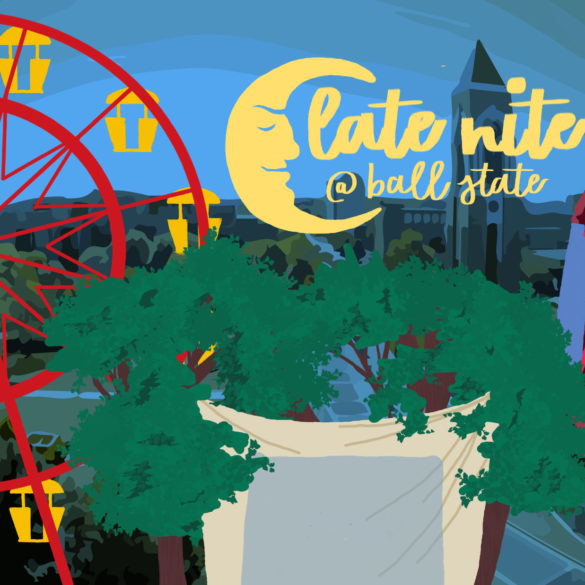Imagine walking down McKinley Avenue on a warm Friday afternoon. You hear the distant cry of “Happy Friday!” by someone in a morphsuit. You can also see people jumping into the Frog Baby fountain, dressing the statue in goofy costumes and rubbing her head.
Traditions can be a foundation to relationships, and missing these moments can possibly lead to missing opportunities to create core memories. During college, as people from all walks of life come together in the same few buildings, people seek to lean back on traditions to adjust to a new step in their lives.
According to Donna Rockwell, a licensed clinical psychologist, in the article “The Importance of Tradition”, having an action or behavior that is repeated is important because, “As we honor traditions, so we learn to honor ourselves, and in the final analysis, each other.”
Worldwide, events such as weddings give people the ability to participate in traditions that bond two families into one. According to a Statista report in 2020 studying couples in the United States, 86% of couples kept the standard cake-cutting ceremony during their reception, and 70% maintained an open bar.
People engage in societal and individual traditions every single day. Participating in traditions can create new opportunities by bonding people who may not have met otherwise. Jalen Pleak, a junior at Ball State, majors in both business administration and human resource management. When they rush, though, it’s purely about the bond formed. COVID-19 may have changed the influx of possible recruits, but the bond hasn’t changed.
“These are all my best friends now. I have various group chats with them or different things I can do all the time. I’ve found people who are probably going to be at my future wedding, maybe as groomsmen,” Jalen says.
Similarly, Ball State junior Parker Abrell also felt better connected to his community through the traditions that he participated in as a member of the Ball State Speech Team, a place he didn’t think he’d find himself in.
“The speech team has been something unexpected for me, and that it’s been very much a rock through this entire time of college, finding my place in everything, as well as going through an entire pandemic,” Parker says. “When I look back to my freshman year versus now, I definitely missed the team and the community more than the traditions. But, the traditions were what gave the opportunity to become a community with the team. They were just great things throughout the year to just look forward to and have a good time.”
Every experience someone has doesn’t always turn out as expected, but they can lead to creating strong relationship foundations. Traditions don’t need to be big events, such as weddings or graduations, for them to be impactful.
The little things you can learn about yourself and your community by planning Homecoming activities, participating in Air Jam, attending Late Nite, playing yard games like “Stump,” and throwing yearly holiday celebrations can create lifelong friendships and grow stronger bonds.
One of Parker’s favorite speech team traditions is called, “Ahas, Appreciations, Apologies.”
“That’s kind of just a time at the end of the meeting for the team to come together and just talk freely about what they learned about the team this week, what are we grateful for with the team and the speech community this week, or what did we kind of make a goof on that we want to apologize for,” Parker says.
While the COVID-19 pandemic has heavily impacted every organization and their ability to come together, slowly the mandates are being lifted. As the world starts to heal, organizations start to come together and resume the traditions they have had to forego.
“We’re back and better than ever,” Jalen says. “I always think there’s room for improvement. I hope [Phi Kappa Psi] takes these next years, hopefully pandemic-free, to really grow. I hope they’re able to take this and get people excited.”
The speech team has begun to resume competitions in person. With this change, Parker realizes the positive effect that contact has on the group.
“I think we’re still kind of reacting right now to the whole pandemic, so our team is looking very small right now,” Parker says. “But I think it’s overall made us a lot more tight knit as a community, and so it’s a lot stronger. We lean on each other a lot, and that’s something that I am very grateful for.”
From big to little patterns every single day, people complete and participate in traditions. It isn’t just the activities themselves that draw people to participate and carry on traditions each year. The events and traditions themselves are not what matter, but the communal and personal growth within is what truly makes traditions important.
Sources: Psych Alive, Statista
Featured Image: Milo Hardison




